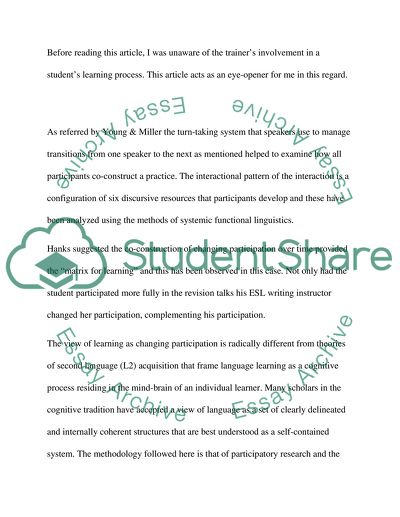Cite this document
(“The understanding of language learning Article Example | Topics and Well Written Essays - 1000 words”, n.d.)
Retrieved from https://studentshare.org/english/1479481-the-understanding-of-language-learning
Retrieved from https://studentshare.org/english/1479481-the-understanding-of-language-learning
(The Understanding of Language Learning Article Example | Topics and Well Written Essays - 1000 Words)
https://studentshare.org/english/1479481-the-understanding-of-language-learning.
https://studentshare.org/english/1479481-the-understanding-of-language-learning.
“The Understanding of Language Learning Article Example | Topics and Well Written Essays - 1000 Words”, n.d. https://studentshare.org/english/1479481-the-understanding-of-language-learning.


